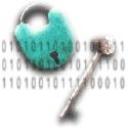Computer users lose their privacy once their online presence and activities are no longer anonymous. Losing anonymity means that someone or a group of people are able to track online behavior. This includes knowing the user’s location or browsing habits.
Most people are not aware that their online activities are under surveillance. It should be noted that Internet Service Providers possess a full record of user activities, not to mention that search engines and websites likewise record all user activities in spite of claims that all data garnered are “anonymized” or has not been provided identifiable information. There are providers and sites that purposely collect personal information to sell to the highest bidder.
So how do we go about protecting our online anonymity? Users can consider using a software implementation that uses a network of servers that can effectively conceal usage and location. This highlights the layered nature of encryption wherein a data is encrypted and re-encrypted many times over on its way to its final destination. The process prevents undesirable elements from unscrambling and understanding the message sent. There are several tools available in the market today including Proxy.org, JonDonym, Ultra Surf, Tor, Proxomitron, and the Ultra VPN.
Another way to protect online anonymity is to install a good software firewall. Computer users can also stick to visiting highly reliable big sites such as Disney which are committed to upholding the highest standards. Upholding the highest standards simply means doing right with whatever information they inadvertently or purposely obtain from the customers. There is also an option to maintain an alias email address to enable users to receive messages without revealing the true email address.




